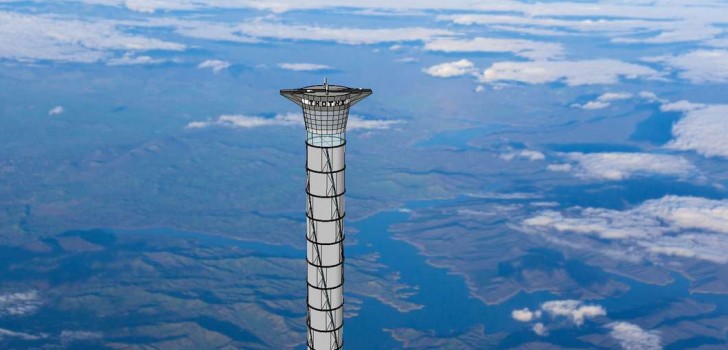The world’s dreams of an elevator capable of reaching up into space just got a little bit closer this week after noted Canadian space and defense firm Thoth acquired a U.S. patent for what may become the world’s first space elevator.
While not a capsule that extends all the way into space itself, as has been proposed in the past, the system would instead lift its cargo high into the atmosphere. The top would hold a platform to enable a short flight into space.
By launching spacecraft from atop the elevator, at an altitude of 12 miles, many of the difficulties – and costs – associated with space travel can be avoided.
Specifications for the patent describe the ability to lift loads up to 10 tons that will not have to be subject to the vibration, g-forces, and waste associated with traditional rocket launches.
Thoth Technology has stated that the use of their space elevator has the possibility to save 30% on fuel costs alone, due to lower air resistance at that altitude and the obvious fact of the 12 mile head start.
According to the patent, “The present invention is a self-supporting space elevator tower for the delivery of payloads to at least one platform or pod above the surface of the Earth for the purposes of space launch.” The vehicles used to depart from the tower would also be able to return to earth.
The technology within the patent is for the most part already available and employs a structure made with tubes of a Kevlar composite held rigid by helium gas.
Earlier designs would have required the use of an “anchor” set in geostationary orbit from which a tether would be lowered and connected to a corresponding tether attached to the Earth. With geostationary orbit located at an altitude of over 22,000 miles, this design is not currently feasible.
Thoth’s new design offers some of the benefits of the original design without the complications.
The basic technology for space flight hasn’t evolved much in the last half century, with large rockets still a requirement to escape the gravitational pull of the Earth.
If Thoth can implement their new elevator patent, the cost savings could accelerate the pace of space missions in addition to its use in other applications such as wind energy and communications.
Stay Connected